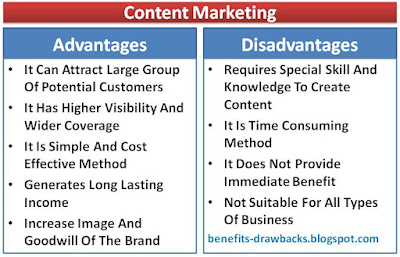What Is Traditional Marketing ?
Traditional marketing is a strategy that uses offline mediums such as radio, TV, newspapers, direct mail, telemarketing etc. for the promotion of products or services. It is the oldest and most commonly used mode of advertising. It has both benefits and drawbacks which are briefly discussed in this post.
Benefits Or Advantages Of Traditional Marketing
The main advantages of traditional marketing can be highlighted as follows:
1. It Is More Familiar Method Of Advertising
People can easily understand traditional marketing because it is one of the oldest and widely used techniques of product promotion.
2. It Is Suitable And Accessible For All
One of the main drawback of digital marketing is that it is not suitable for those audience who do not have access to internet and social media platforms. But traditional marketing is suitable and accessible for everyone because it does not require internet service and digital devices.
3. Reachable To Specific Audience Or Customers
Traditional marketing helps to target specific audience of certain location because it uses location radio, newspapers and TV channel to influence local people. So, it is suitable for the company to attract potential customers of certain region towards the products.
Drawbacks Or Disadvantages Of Traditional Marketing
The main disadvantages of traditional marketing can be described as follows:
1. It Is Expensive Method Of Advertising
Traditional marketing requires more cost and resources than internet marketing. It needs huge marketing budget to promote brand through radio, TV or newspapers.
Also Read:
Advantages And Disadvantages Of Digital Marketing
Advantages And Disadvantages Of Content Marketing
Advantages And Disadvantages Of Direct Marketing
2. Limited Number Of Audience
As we know that online marketing attracts large group of audience because it performs globally. But in traditional marketing gives emphasize to the specific audience of specific location. So, it is reachable to limited number of potential customers.
3. It Is Difficult To Measure The Performance
Performance of online marketing can be tracked and measured by using different online tools and applications. But in traditional marketing, it is difficult to collect data and information about the campaign. So, performance and conversion cannot be measured accurately in this mode of advertising.
Pros:
- It is the oldest method, therefore everybody can understand this strategy easily.
- This mode of advertising is accessible for all types of audience
- It is suitable to attract specific group of potential customers
- Product testing is possible through this strategy of marketing
- Success rate is higher than other forms of marketing
Cons:
- It requires more budget and resources
- It cannot attract large number of audience like digital marketing
- Audience get limited information
- It is difficult to track and measure the performance
























